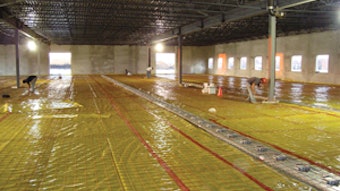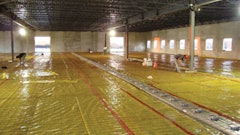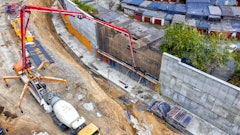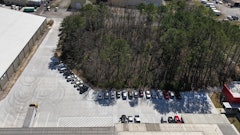In comments submitted to the U.S. Department of Energy's Advanced Manufacturing Office (AMO), the Portland Cement Association (PCA) stated that federal policy and support is vital to accelerate the deployment of technologies that can decarbonize the U.S. industrial sector.
In its comments, PCA noted that it shares the Biden-Harris Administration's goal of carbon neutrality by 2050 through its own Roadmap to Carbon Neutrality, which lays out a pathway to achieve this across the cement-concrete-construction value chain by 2050.
The comments also state that without strong federal support, AMO's timeline to reach carbon neutrality across industry is unrealistic due to the significant technical, legal and economic challenges regarding technologies like carbon capture utilization and storage (CCUS), and others including hydrogen fuel and kiln electrification.
"Federal policy must accelerate the significant technology, funding, and market innovation needed for rapid decarbonization while preserving economic growth and international competitiveness," says Sean O'Neill, senior vice president of government affairs at PCA. "The adoption of CCUS is key to achieving deep decarbonization in the cement industry."
PCA also noted that adopting CCUS technologies is key to achieving deep decarbonization in the cement industry:
- CCUS would capture the 60% of cement sector emissions that come from converting limestone to clinker, the key ingredient in cement.
- With the right federal and state policies, CCUS could become scalable within 10 years – but infrastructure, policy, permitting and funding challenges remain.
- 45Q tax credit and other tax incentive reforms, and the use of Department of Energy loan programs, would accelerate early investment and adoption of CCUS.
The PCA comments also state that hydrogen fuels and kiln electrification present potentially transformative emissions reduction technologies, but neither measure will be viable for at least 15-20 years:
- Hydrogen remains very expensive and there is little current infrastructure for the transport and storage of hydrogen.
- More research and development is needed to evaluate the efficacy of kiln electrification as a decarbonization measure, such as refining modeling assumptions, integrating different modeling frameworks, and conducting sensitivity analysis on a wide range on scenarios.
These comments follow roughly two weeks after the Biden-Harris Administration announced its actions impacting the industrial sector by the creation of the Buy Clean Task Force. As described in the February 15 statement by the White House, the Buy Clean project aims to "promote use of construction materials with lower embodied emissions and pollutants across their lifecycle—including each stage of the manufacturing process."
The Task Force aims to make recommendations towards:
- Identifying materials, such as steel and concrete, as well as pollutants to prioritize for consideration in Federal procurement and federally funded projects
- Increasing the transparency of embodied emissions through supplier reporting, including incentives and technical assistance to help domestic manufacturers better report and reduce embodied emissions
- Launching pilot programs to boost federal procurement of clean construction materials
“PCA applauds the Biden-Harris administration for highlighting the importance of the industrial sector in tackling the climate crisis. PCA member companies are committed to doing their part in reducing the carbon intensity of American industry for years to come. PCA has been working toward implementing our industry’s Roadmap to Carbon Neutrality to reduce carbon emissions across the entire cement-concrete-construction value chain since last October. We are pleased to see our thinking reflected in many of the actions proposed today.
“We are delighted the White House has recognized that carbon reductions cannot be achieved via a single industry in isolation – it requires collaboration across an entire value chain. We are therefore encouraged to see alignment with the White House on a variety of critical issues. These include taking a lifecycle approach to evaluating construction materials, encouraging collaboration, engaging the workforce, and incentivizing private sector innovation.
“We look forward to working together with the White House Office of Domestic Climate Policy and the Council on Environmental Quality on this vital initiative. Meanwhile, PCA will continue its efforts with government agencies including the Department of Energy, Department of Transportation, General Services Administration and the Environmental Protection Agency to develop and implement policies that will help the industry to reduce emissions and reach carbon neutrality across the entire cement-concrete-construction value chain.”
—Portland Cement Association (PCA) President and CEO Michael Ireland


























